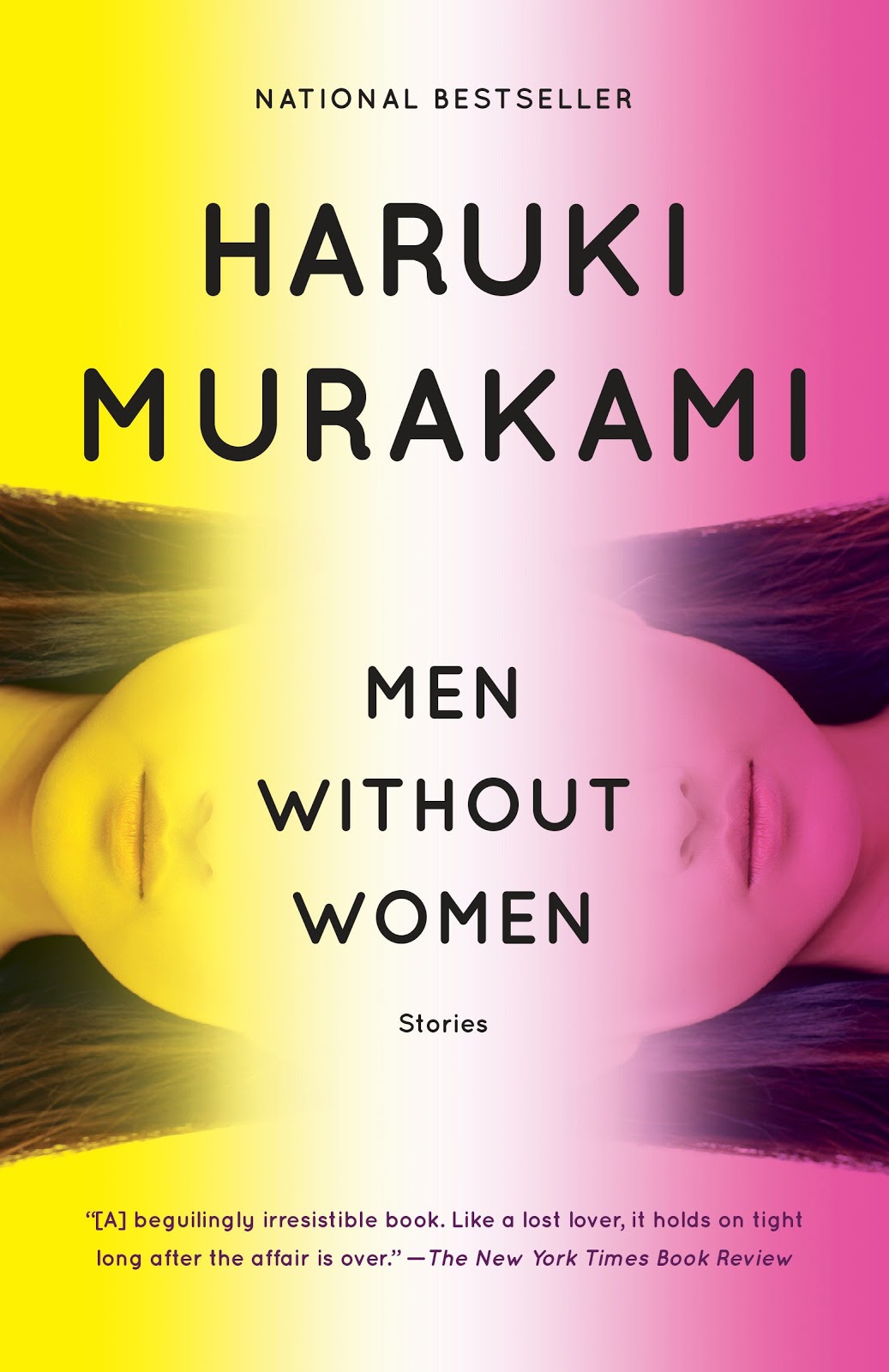 |
| Amazon |
 |
The call came in after one a.m. and woke me up. Phones ringing in the middle of the night always sound harsh and grating, like some savage metal tool out to destroy the world."
So begins the title story of Haruki Murakami's collection of short stories. Murakami is one of my favorite authors, whether writing epic tales or short stories. These stories are about men and women, men with women, and especially in a deeper way, the impact on men being without women.
Grade: B-
Murukami's style has been described as magical realism, but at most only one story in this collection fits that description, and that only loosely. "Samsa in Love" is about a being of some kind (alien, android, human, at least something in a human body) who awakens in an empty house, entirely naked. He struggles to get out of bed, as his legs and feet and arms and hands are entirely unfamiliar to him. As Samsa struggles with getting up and dressed and about, the reader struggles to make sense of what is going on here.
Other stories are on firmer, more familiar, ground. "Drive My Car" tells of a businessman who hires a driver, a woman, even though the businessman normally distrusts riding in cars driven by women. Much of the story involves Kafuku (the businessman) talking with Misaki (the driver). It's a tale that reveals a lot about the relationship between men and women in Japan, I suppose, and everywhere. Kafuku tells her about his deceased wife's extra-marital affair and his attempt to understand that. It provides more revealing details about men and women, at least from Kafuku's point of view.
"Yesterday" is a short, odd tale that is quintessential Murakami. The title comes from the Beatle's hit single of the same name. In this story, a friend of the narrator translates the lyrics into Japanese. Or, more precisely, writes new nonsense Japanese lyrics for the melody. All of Murukami's fiction contains references to Western music: pop hits, jazz, classical. The story revolves around the narrator's friend, who is strange in more ways than just song-writing. He deliberately adopts a non-Tokyo, Kansei accent despite not being from Kansei. He asks the narrator to date his girlfriend. What follows is yet another perspective on the relationship of men and women.
"An Independent Organ" tells the tale of Dr. Tokai, a plastic surgeon with an antipathy for emotional relationships with women. "Women are all born with a special, independent organ that allows them to lie" is Dr. Tokai's personal opinion. So, he has affairs but never lets any of them become serious. He seems to have it all. Until he doesn't. The story leaves you pondering what goes wrong and why.
That's enough to get the gist of the collection. All the stories focus on relationships between men and women, all from a male's point of view, but not misogynistic, or at least not consciously so. And they all contain elements common to all of Murakami's works. As an introduction to Murakami, these stories will do, but afterwards, I recommend you read some of his longer works, novels that engage in magical realism, for the full Murakami experience.

No comments:
Post a Comment